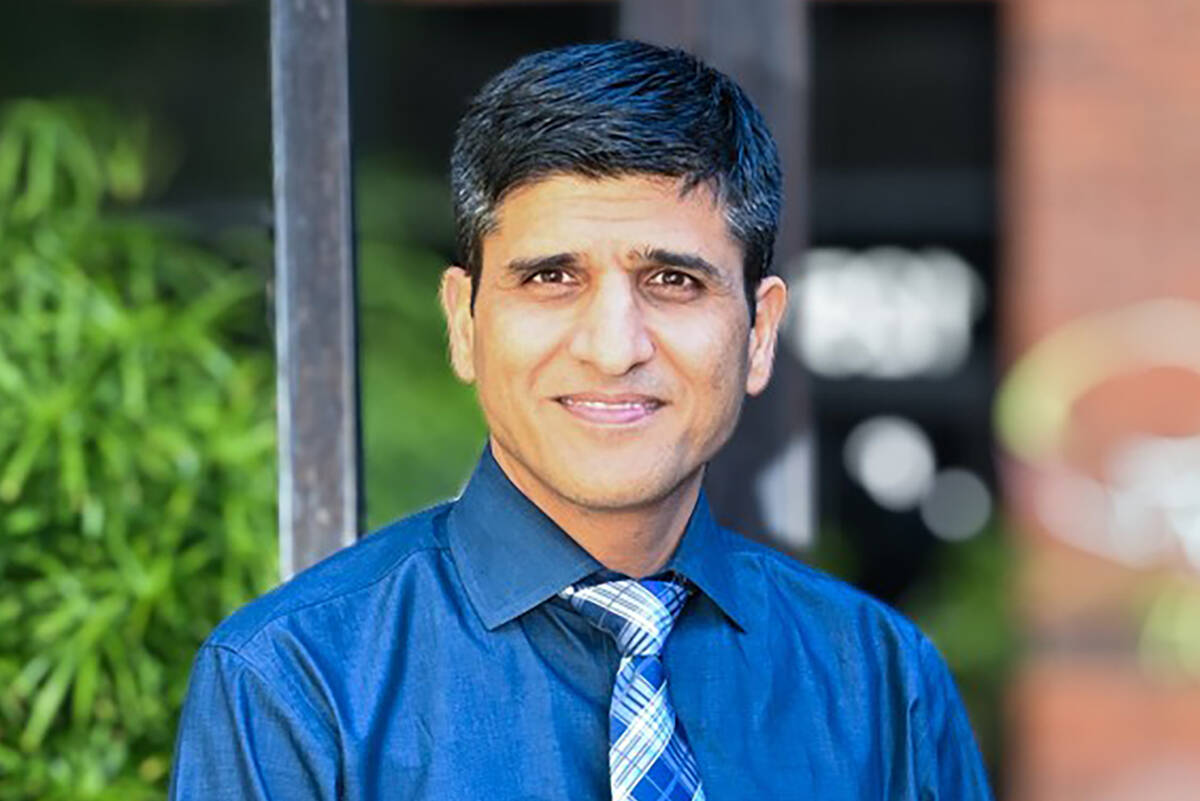Nevada’s dismal ranking on mental health unacceptable
I love the Las Vegas community. However, I cringed when I saw a recent report from Mental Health America ranking Nevada 51st in the country for its prevalence of mental health conditions and limited access to mental health services. To put it frankly, this statistic is not acceptable for our great state.
According to the National Alliance on Mental Illness, a board I serve on, roughly 474,000 Nevadans have a diagnosable mental health condition — a figure that is more than eight times the population of Carson City.
Roughly 109,000 of those 474,000 people have what is considered a severe mental illness, which includes conditions such as schizophrenia, bipolar disorder and depression that often need to be treated with medication.
Because of the low number of psychiatrists in Nevada, many individuals with severe mental illness are not under a psychiatrist’s care. (The national average is 15.6 psychiatrists per 100,000 residents; in Nevada, it is nine psychiatrists per 100,000 residents.)
I recently talked with one of the amazing psychiatrists in our community, Sid Khurana, about his practice, the Nevada Mental Health Clinic, and how they are working to improve mental health care in our state. He is board certified from the American Board of Psychiatry and Neurology in general psychiatry and board certified in child and adolescent psychiatry.
Sheldon A. Jacobs: Please tell us about the Nevada Mental Health Clinic.
Sid Khurana: We are a clinic geared to serving the larger community. This is not a practice just for the well-to-do who can afford to do self-pay, but for all Nevadans — as our statement says, “quality psychiatry for all.”
The general population is the segment that doesn’t have the ability to do self-pay for mental or psychiatric health, or on the other extreme, those involved in the juvenile or foster care system. These are individuals who are working and have private insurance or Medicaid insurance and are using their insurance to receive psychiatric care for themselves or family members.
I love seeing children through the lifespan, especially the ones that struggle with neurodevelopmental and neurocognitive disorders such as autism or fetal alcohol spectrum disorder. We have a wonderful team of mental health experts that have different specialties and passions.
We care about this community, and we are trying to elevate the level of mental health so that we can try to eliminate the joke of, “Where do you go for good mental health care?” “Go to the nearest airport and fly out of here.”
We are trying to change that narrative, as we are not the poorest state in the country, and our education and mental health should not be at the bottom. So, by elevating mental health, we need to make high-quality mental health accessible for every Nevadan out there.
What makes your clinic unique?
We are a generous-sized clinic with more than 15 psychiatrists and several advanced practice registered nurses. We do not do 5- or 10-minute appointments. Our follow-up appointments are typically 25 to 30 minutes long, and our evaluations are typically 60 to 90 minutes long.
The idea is sitting down with our patients and trying to come up with what is going on and then deciding on whether medication is needed. We find it important to utilize evidenced-based pharmacological and nonpharmacological interventions as appropriate.
To my knowledge, we are the only clinic of its size that does not double book, so if my patient has a 9 a.m. appointment, they are getting seen at 9 a.m. and out of the door by 9:30 a.m., whether it is a physical door or virtual door. We respect people’s time, and we want to give them time as we sit with them.
So, really, it is using your insurance as if it is self-pay. We believe this is key in elevating mental health because most people use insurance.
What is transcranial magnetic stimulation?
It is a technology that has been around now for more than 20 years. TMS has been FDA approved for more than a decade and half.
Our human brain is an electrochemical device. And when we are doing psychotherapy, psychotherapy is causing a change in both electricity and chemicals in an indirect way. When we use medications, the medications are changing the brain chemicals or neurotransmitters. In physics, when there is a change in the current or magnetic field, it leads to a change in the electric field.
A coil goes over the head of a patient, and there are these magnetic pulses which are changing the magnetic field. The change in the magnetic field, depending on where the coil is placed causes a change in certain superficial parts of the brain in a completely noninvasive fashion.
A patient wears a coil on their head for 20 minutes. Depending on the condition being treated, the coil will target a specific area on the scalp, to change electric potential in a superficial part of the brain, which is connected to the deeper part of the brain. That changes transmission in that entire neural circuit.
For depression, we target the prefrontal cortex. Right from the surface I can go indirectly deeper into the brain and change how the cerebral cortex works. We use different areas of the brain for obsessive-compulsive disorder, anxiety and smoking cessation.
We have seen very impressive results amongst our patients.
For more information, visit nevadamentalhealth.com.
Sheldon A. Jacobs, Psy.D., LMFT, is a licensed mental health professional based in Las Vegas. Contact him at drjacobs10@hotmail.com. Follow @drjacobs33 on X and Instagram.


















